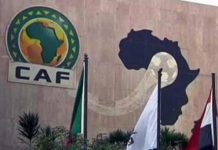Africa-Press – Lesotho. THE Chinese embassy could have piled pressure on the Lesotho government to protect a Chinese national after his business deal with the Lesotho National Wool and Mohair Growers Association (LNWMGA) soured.
Stone Shi, the Chinese man at the centre of the tug-of-war between government and the wool farmers, enjoys the support of the Chinese government and the Lesotho government.
The result is that the Lesotho government is unlikely to back down from its fight to force farmers to sell their wool and mohair locally to benefit Stone’s company, Maseru Dawning.
There are also strong indications that the controversial regulations that prohibit the export of wool and mohair could have been cobbled up to protect Stone’s interests.
Stone doesn’t make secret of the fact that he sought the intervention of the embassy which then approached the government on his behalf. He says he approached the embassy after the LNWMGA refused to supply wool and mohair to the Lesotho Wool Centre in Thaba Bosiu.
Maseru Dawning owns 25 percent of the centre while the association controls 75 percent. Stone told thepost this week that the embassy took him to several ministers to explain his case.
“I am a foreign investor and I have to be protected. The ministers understood my issue and promised to help,” Stone says.
“They said if that is the case then they have to protect a foreign investor in order to protect Lesotho’s national interests and reputation as an investment destination.
”
He says the ministers saw “this as a robbery”.
“After I showed them the papers they said that cannot happen in Lesotho.
”
Stone was evasive which ministers said these words. But he says he recalls that there was a committee that included Small Businesses Minister Chalane Phori and Trade Minister Tefo Mapesela.
Both ministers were instrumental in drafting the contentious regulations that have now caused the stalemate between the government and the farmers. Both have staunchly defended the regulations and insist that the farmers will have to obey the regulations or face the wrath of the law.
The 10 000 square-metre warehouse at the centre of the dispute has been empty since its completion in September 2017 because the LNWMGA has refused to supply wool and mohair. Trouble started soon after the centre was completed and the association withheld its wool and mohair.
The association insisted on selling its product through BKB, a South African company that has been acted as a broker for Lesotho’s wool and mohair for more nearly half a century.
Although evidence is patchy there are indications that as soon as the Chinese embassy intervened trouble started for the BKB. The company was accused of violating banking regulations and dodging tax.
Its accounts were frozen and a police investigation was launched. The accounts were however opened after a court order. The allegations of tax evasion seem to have gone nowhere even after the BKB wrote to the Lesotho Revenue Authority (LRA) seeking clarity.
Despite this Mapesela and Phori have been unrelenting in their accusations against BKB. They have described the deal between farmers and BKB as “exploitative”.
They believe that farmers will get more if the wool is sold in Lesotho instead of South Africa. That model has however not been practically tested. Nor is there a detailed analysis of how it will benefit both the country and the farmers.
So far Maseru Dawning is the only company licenced to export wool and mohair from Lesotho. The farmers are now stuck with their products while the government insists that they should sell locally.
The livelihood of the nearly 50 000 farmers and their more than 300 000 dependents is in jeopardy. Minister Mapesela has said there will be no going back on the regulations.
If the farmers don’t want to comply with the laws they should stop using the government’s shearing facilities, he said. To understand why the government is fervently fighting in Stone’s corner you have to go back to the history of his deal with the association.
In February 2012 the association invited a delegation from Stone to Lesotho to build cooperation in the wool and mohair industry. In July 2012 a group of ministers, officials from the Lesotho National Development Corporation (LNDC) and officers from Lesotho’s embassy in Beijing visited Stone’s company in China.
The delegation is said to have requested the company to invest in Lesotho’s wool and mohair industry. In October 2014 the Ministry of Agriculture started assisting Stone to find a site to build the wool centre.
After considering some land in Ha Foso, Stone and the association eventually settled for a site in Thaba-Bosiu in January 2015. They then signed the Memorandum to form the Lesotho Wool Centre Joint Venture in which Maseru Dawning had 25 percent while the LNWMGA held 75 percent.
Although the agreement was between Stone and the farmers the Lesotho government saw it as part of an arrangement between the two governments. The Lesotho government had been intricately involved in the making of the deal from the onset.
To the government this was a reflection of the warm relations between the two governments. Over the years, Lesotho has been a beneficiary of China’s generosity.
The parliament, the Manthabiseng Convention Centre, the National Library and the State House were built with grants from the Chinese government. Prime Minister Thomas Thabane announced further donations following his return from the Forum on China-Africa Cooperation summit in Beijing in September.
He said China had written off the loans for the construction of the parliament and the Manthabiseng Convention Centre. He said in addition the Chinese government had pledged to donate M300 million in cash and M66 million in food aid.
Stone says the association invested M2 million while his company put in M30 million in the Lesotho Wool Centre. The association however hotly disputes this figure, insisting that the total amount invested was not more than M7 million.
Stone seems to trip himself with the numbers. In court papers he filed in a bid to force the LNWMGA to supply him with wool and mohair, Stone says he invested M33 million which he borrowed from banks.
In an interview with thepost this week he said the figure was “around M40 million”. A contract with a company that constructed the warehouse shows that it cost M55 million.
All these figures are false, according to the LNWMGA. The association disputed the M33 million figures in its response to Stone’s lawsuit. It said there was no way Stone could have invested that much because there is no record of it in the Lesotho Wool Centre Joint Venture’s bank account.
The association also says there was no way Stone could have borrowed so much money without involving it in the agreement. Stone however says the association is trying to mislead its members to justify its breach of the agreement.
“Look at that building. Do you think that is worth only M7 million? It’s a lie. They are lying,” he said yesterday.
His evidence that he invested more is the M55 million construction contract the Lesotho Wool Centre Joint Venture has with a company called Chu Ye (Pty), a Chinese owned company.
The association says that was an estimation of the whole project that was supposed to include an office block, wool-bailing factory, pre-sale sample store, testing lab, wool classing centre and transportation centre.
Thus far only the greasy wool store has been constructed. In court papers Stone claimed that he got loans to finance the project. But during the interview with thepost he said he used “personal money” and does not owe anyone.
In February this year Stone lost the legal battle to force the association to supply wool and mohair to the centre. Justice Lisebo Chaka-Makhooane ruled that there was nothing in the Lesotho Wool Centre Joint Venture agreement that compels the farmers to supply wool and mohair to the centre.
Justice Chaka-Makhooane said the wool and mohair belonged to the farmers, not the association. She said if Stone was aggrieved he could still file a civil lawsuit to seek damages from the association.
The import of that judgement was that the farmers had no obligation to sell their product to the centre. Stone says he is peeved by the judgement because “It makes no sense”.
“Why would I invest so much in this centre if the association was not going to supply the wool to it? It makes no sense at all,” he says. But the agreement seen by thepost does not say anything about farmers supplying their wool and mohair to the centre.
During the court hearing Stone’s lawyer admitted that the agreement did not say so but insisted that it was the spirit behind its design that mattered.
He argued that it would not make business sense for the farmers to build the centre but withhold the wool and mohair. He blamed the lack of a clause compelling farmers to supply the centre on the fact that the person who drafted the agreement was not a lawyer.
But Justice Chaka-Makhooane said it was not the court’s business to amend contracts between two parties. She said her reading of the agreement is that its main purpose is to “promote and realise the development of wool and mohair business in Lesotho including building a wool centre for the purpose of greasy wool storage etc”.
The agreement, she said, nothing about the farmers supplying wool and mohair to the centre. The judgement delivered in February did not resolve the problem.
By that time BKB was already under pressure from government. Although its accounts had been reopened through a court order, the company was still under a barrage of attacks from government ministers.
An investigation by thepost has revealed that as the hearing date drew closer a group of ministers requested Stone and the LNWMGA to withdraw the case so that they could settle it out of court. Although both parties agreed to the suggestion in the meeting Stone did not withdraw the case.
A few days before Justice Chaka-Makhooane’s judgement a cabinet minister allegedly tried to get the LNWMGA chairperson Mokoenihi Thinyane to sign a document that purported to amend the association’s agreement with Stone.
It is alleged that the minister called Thinyane to his office and asked him to sign the document. Thinyane is said to have said he needed more time to consult the association’s leadership.
The document said the association was agreeing to supply wool and mohair to the
association. That amendment would have concretised the agreement and rendered the court case moot.
The association however refused to sign the addendum. A member of the LNWMGA’s executive committee said the “amendment was discussed at length and then rejected”.
“It was a mischievous document meant to influence the court and give the impression that the association was now working well with the Stone,” he said. Without a clause requiring the farmers to supply their product to the centre, Stone’s case crumbled.
Justice Chaka-Makhooane’s judgement confirmed that the deal between the farmers and stone did not extend to the supply of wool and mohair to the centre.
The ruling should have closed the matter but it seems to have set in motion a chain of events that have led to the impasse that now threatens to bring the M400-million industry to its knees.
Soon after the judgement the government started drafting the controversial regulations that have now caused the impasse. LNWMGA spokesperson Rantelang Shea said the farmers are convinced that the regulations are meant to achieve what Stone’s lawsuit failed to accomplish.
Stone says that is not true “because I am just a foreigner who has no influence on anyone”. “Those regulations were done by cabinet and parliament. I did not make any contribution to them,” he said.
One of the reasons farmers give for refusing to work with Stone is that they don’t understand the system he will use to sell their wool to the international market.
They also say they are not sure of his credentials in the wool and mohair industry. Stone says he has been in the industry since 2000. He claims to have vast experience in the marketing of wool and mohair.
His credentials, he says, include a three-month training course in Australia and four years as a cadet in a Chinese textile companies that specialised in wool and mohair.
He says the wool and mohair will be auctioned to the international market through the internet. His plan is that when he has enough wool he will send the samples for testing.
“After that we will have the testing reports which we will then show the buyers. They will then start bidding and we will go for the highest price,” he says. So what makes him different from BKB, we ask him.
“I am a broker and I have the skills and resources to reach the international buyers,” he says. BKB does the same but in a traditional way because the buyers come to a physical auction instead of a digital one.
He says he will charge a four percent commission but insists that his model is better because it will save the farmers 18 percent in transport costs. That however does not take into account the fact that the wool and mohair will still have to be taken to a port.
By Wednesday morning Stone was upbeat that the LNWMGA was starting to send wool and mohair to the centre. He said he had been told that trucks were being loaded to deliver the product to the centre.
On several occasions during the interview with thepost Stone spoke to people he said were telling him that trucks were on their way to the centre. “They tell me that the association is now bringing bales here.
I hope this is the end of the fight,” he said. It turned out that the association was not delivering the wool and mohair to Stone but to keep in the warehouse at the centre because its storage facilities are full.
“That facility is ours as an association. We are just using it to keep our product in the meantime because we have run out of space,” Shea said.
“There will be a letter from the lawyers indicating how the stock will be kept. We are not giving anything to Stone.”







Ihr solltet die Chinesen , aus Euren Land vertreiben ! Die nutzen Euch nur aus , das sind Verbrecher , die Chinesen !